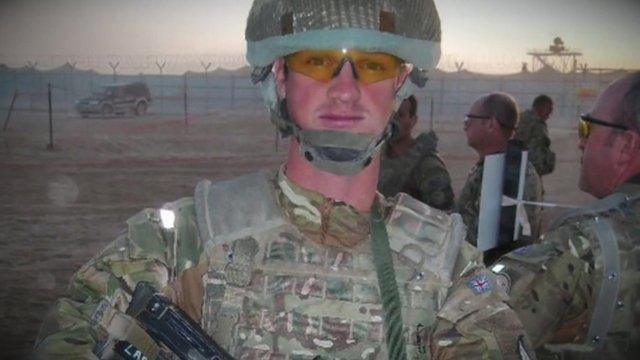Post-Traumatic Stress Disorder: Soldiers talk of 'living nightmare'
- Published
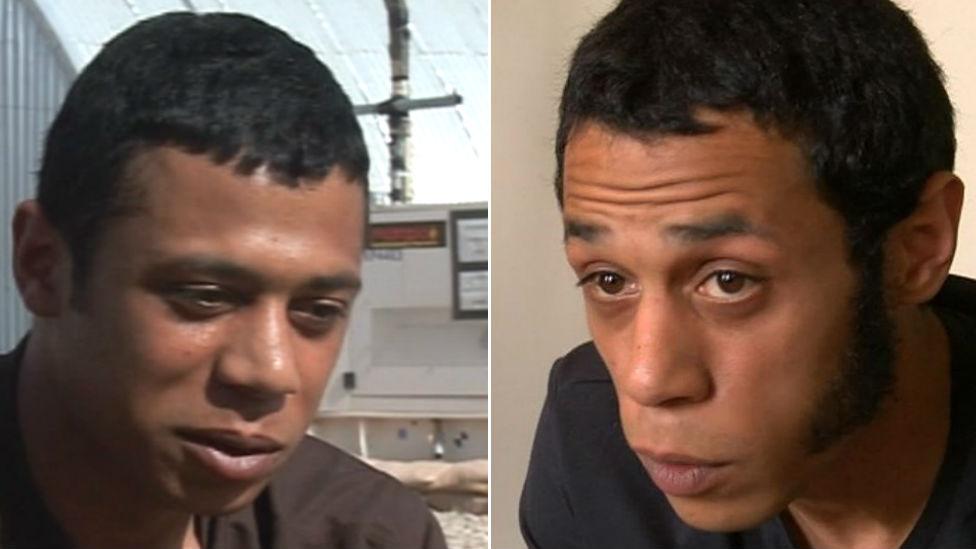
Leroy Risi served in Afghanistan and has been diagnosed with post-traumatic stress disorder
In 2009, the BBC's Jeremy Ball travelled to Afghanistan where he spoke to Pte Leroy Risi, deployed there with the Mercian Regiment shortly after leaving school in Nottingham.
Six years later, after seeing the violent deaths of several comrades and his discharge from the armed forces, Mr Risi is a different man, having been left with post-traumatic stress disorder (PTSD). It is only now, with the help of the charity Combat Stress, he is able to talk openly about how he feels.
"Imagine trying to score a goal. Because [the enemy are] trying to score a goal against you, you're always happy that you've scored a goal. So when you shoot someone, it feels kind of good".
Leroy Risi's description of carrying out the killings he was trained to do is brutally honest but six years on he sees it very differently and for him and his comrades facing the enemy inevitably left its mark.
"It terrorises me at night," he said. "If you have a nightmare where your friends are being blown up, you relive these things over and over and over again."
Mr Risi says his experience made him aggressive. He constantly looks at rooftops, as if he is on patrol and still at war.
His friend Vaughan Cook, from Hucknall, suffered similar symptoms.
"I had very high levels of aggression, anxiety, paranoia," he said. "Then I got heavy on the drinking, two litres of whisky a day. I've done some bad things. I've self-harmed".
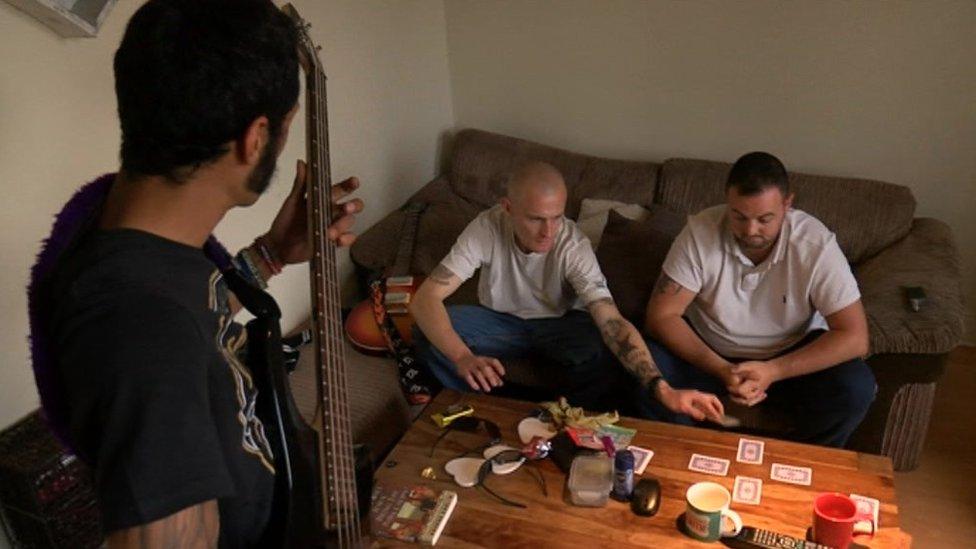
The men have found it hard to adjust to life following their experiences in Afghanistan
Mr Cook had to deal with the aftermath of a suicide bombing in which three British servicemen were killed.
"We just started seeing body parts on the floor," he said. "A child had a wheelbarrow with an IED in it. He detonated himself and took out two comrades and the driver."
Up to 1,000 veterans of the conflict in Afghanistan are being supported by Combat Stress.
But Mr Cook said it had not been easy to get help.
"I was trained to kill. There's no-one out there to train me in anything different. I had a job in a pub. I had to leave that due to mental health," he said.
"You've got to go on a waiting list. You've then got to prove to them that you're ready for that treatment.
"I've been turned away a couple of times because apparently I've been too bad."
Their war might be over but it is clear that Mr Risi and Mr Cook are still fighting to heal mental scars affecting many former soldiers.
The Ministry of Defence said it was doing more to support soldiers in war zones and had been campaigning to help them open up about their experiences.
It said for veterans who have left the forces, there were new NHS mental health teams and a number of charities who could help.
Combat Stress, external, which has been helping the men featured in this article, can be contacted on 0800 138 1619.
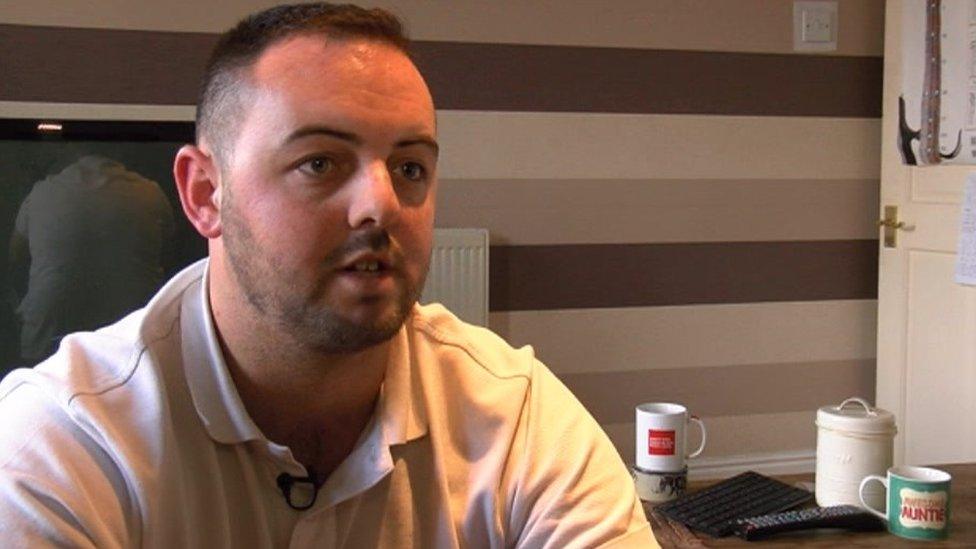
Vaughan Cook said he had found it hard to get help
- Published27 October 2014
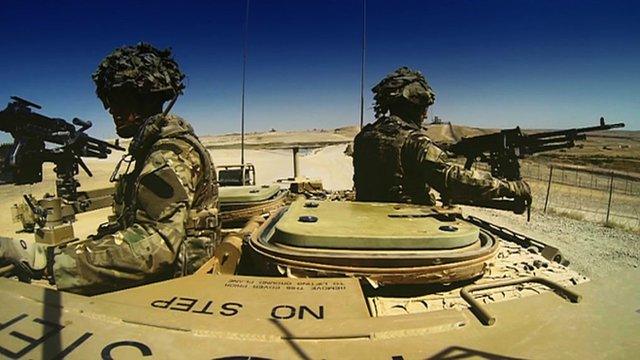
- Published12 May 2014

- Published14 July 2013
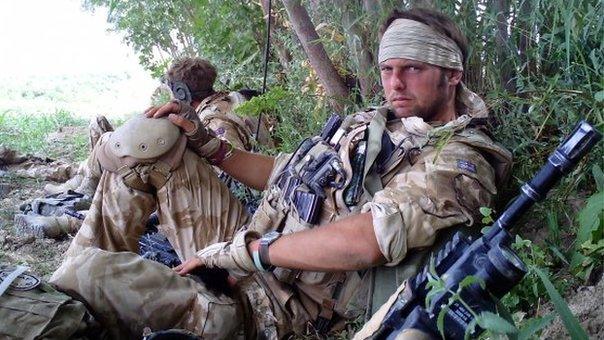
- Published24 December 2014
